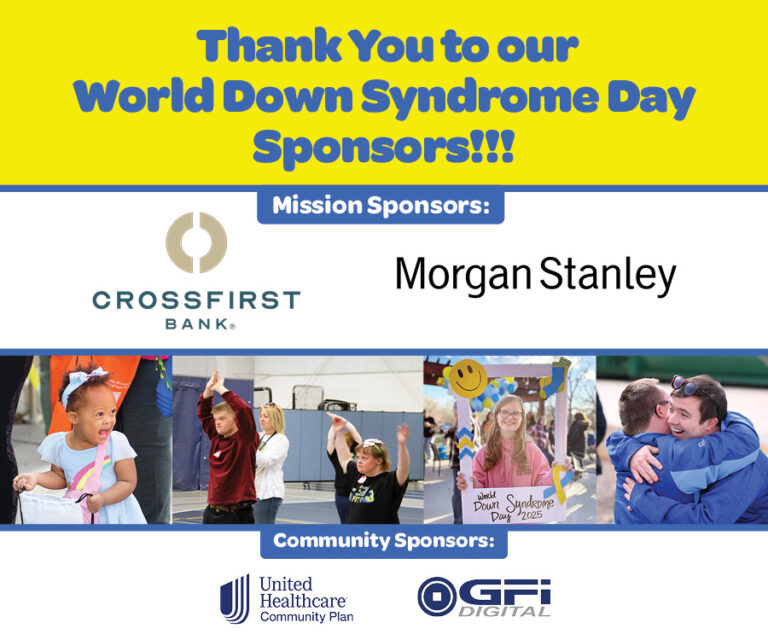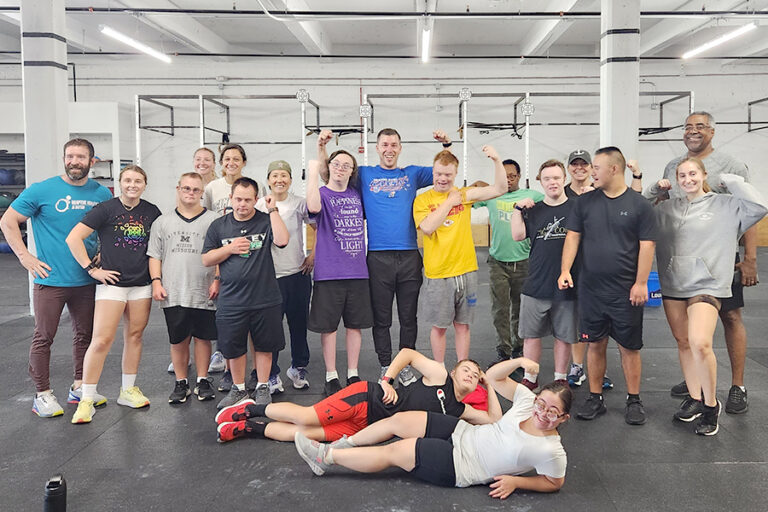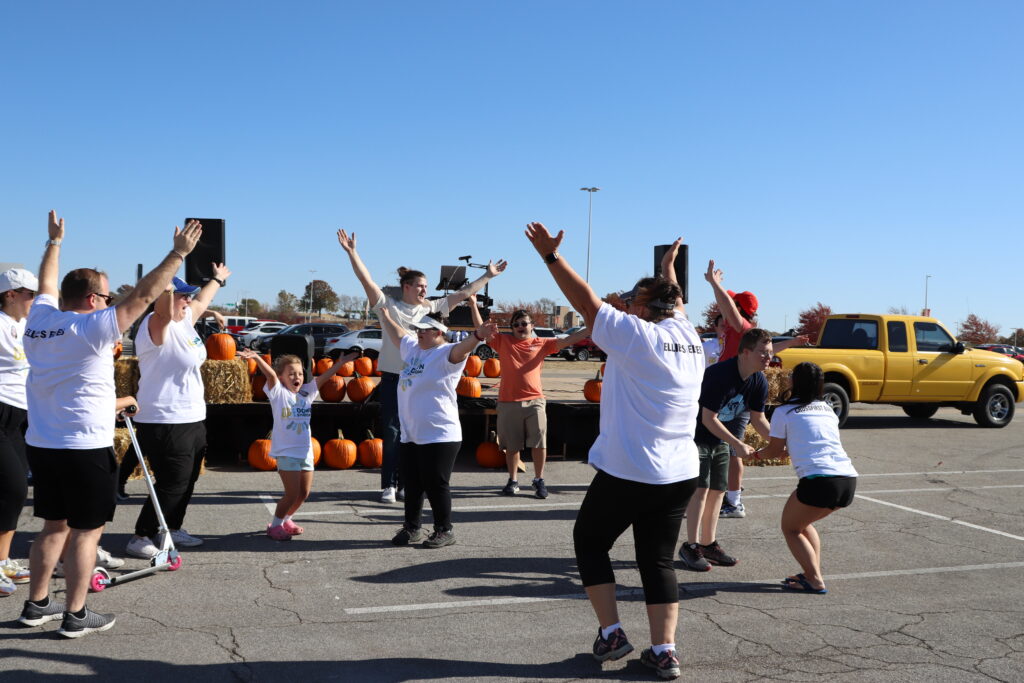

Over 100 cars filled with families of people (and babies!) with Down syndrome joined us for our Drive Thru Celebration on World Down Syndrome Day 3/21! Thank you to all of our staff, community partners (including the Chiefs), volunteers, and friends who joined us in making each person feel celebrated by cheering, dancing, handing out goodies and gifts!
Special thanks to WDAF-TV FOX4 who visited with us and shared our story! Together, we make an impact!



JUST LIKE YOU — DOWN SYNDROME – explores the life, hopes, challenges and dreams of three kids living with Down syndrome. Elyssa, Rachel and Sam share personal stories to help viewers better understand their condition and why they wish to be treated just like you. Each of our stars has their own talents, characteristics, strengths and challenges. Down syndrome is just one part of who they are and this film identifies how to handle and accommodate differences while celebrating the many similarities our friends with Down syndrome have with their peers.
View the video below and share with friends.
View the video in other languages.
Spanish: https://www.youtube.com/watch?v=MEh3n-R48qU&t=5s
Portuguese: https://www.youtube.com/watch?v=J6uwblQTF-o
Icelandic: https://www.youtube.com/watch?v=4LZag63Cufo
Close Captioned: https://www.youtube.com/watch?v=GpJN49B1FCM&t=17s
Common Random Acts of Kindness:
People First Language (PFL) is a way of communicating that reflects knowledge and respect for people with disabilities by choosing words that recognize the person first and foremost as the primary reference and not his or her disability. The phrase “mental retardation” is offensive and outdated. The terms “developmental disability,” “cognitive disability,” or “intellectual disability” may be substituted as more respectful options.
Disability Style Guide
As language, perceptions and social mores change rapidly, it is becoming increasingly difficult for journalists and other communicators to figure out how to refer to people with disabilities. Even the term “disability” is not universally accepted. This style guide, which covers dozens of words and terms commonly used when referring to disability, can help. The guide was developed by the National Center on Disability and Journalism at Arizona State University’s Walter Cronkite School of Journalism and Mass Communication and was last updated in the summer of 2021.
Please contact us with any media inquiries. We will happily provide photography, quotes, connect you to families, or share success stories!